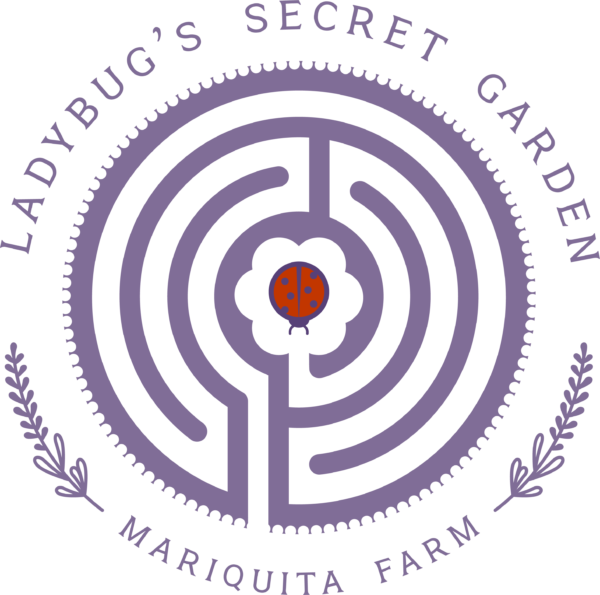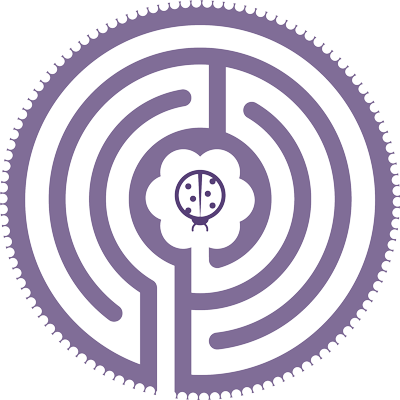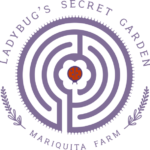Kisses From A Rodeo Queen—A Short Biography
 (julia’s note: this is Andy’s bio and he wrote it, I’m still learning about the blog world. Photo by Janet Fine of Cabrillo College.)
(julia’s note: this is Andy’s bio and he wrote it, I’m still learning about the blog world. Photo by Janet Fine of Cabrillo College.)
I was born at the tail end of the fifties, and if it’s true that we are what we eat, I didn’t stay pure for long. My parents were students, and we lived in an unremarkable apartment building in Berkeley. One night a neighbor hosted a cocktail party. The next morning my mother helped her friend clean up while I crawled around on the floor. When mom caught up with me I was eating cigarette butts and washing them back with the dregs of yesterday’s martinis. Quite by coincidence, we were visited that afternoon by a couple of dry old ladies from the Women’s Christian Temperance Union. They asked my mother to pledge that she would never her precious baby’s lips touch demon alcohol. Too late.
In the early sixties my father got a job as a research ecologist with the U.S. Forest Service. We moved to Redding, at the top end of the Sacramento Valley, where we lived on a typical suburban street. We probably had cookouts in the backyard with hotdogs and Kool Aid, but I don’t remember any of that now. I was totally absorbed in my life as a cowboy. Back then, being a cowboy was more about homicide than working with herds of cattle and managing the range as a renewable resource. Somewhere we have a black and white photo of me astride my tricycle in my cowboy hat with my gun belt and two six shooters. But pictures can’t tell the whole story. My great grandmother gave me an Indian war bonnet of colored chicken feathers, so sometimes I shot cowboys.
Either way, I was tough, until one morning when I stepped on a bee while playing in the sprinkler, and then I cried like a four year old. My mother healed me with a bowl of perfect Bing cherries. I doubt that I’ll ever eat a cherry that tastes as good as those first Bings my mom gave me because no farmer’s growing practices can compete with a mother’s touch when it comes to creating complex, sweet flavors with a lifelong finish. When I grew up to be a farmer, instead of a psychopathic serial killer, I learned first hand how much emotional cargo consumers bring with them when they shop for fruit. I grew strawberries for a while, but now I stick to cultivating vegetables and herbs. I find that growing savory flavors better suits my bitter temperament than trying to produce fruit that can match the consumer’s sweet memories.
The swelling went down from the bee sting after I finished my snack but it took a while for me to recover from my infantile bout with “mad cowboy disease.” My family moved to rural Monterey County, in the mountains south of Soledad. I holstered my pistols and started working on ranches when I turned twelve. There were tough times and setbacks. I was given a calf to nurse that had a botched castration. The deal the rancher made me was that if I could cure the calf I could keep it. I envisioned the sick steer as the humble start of my someday vast herd. But after a lot of blood and sweat and pus and agony I had to shoot the poor animal with a real rifle.
I joined the Future Farmers Of America vocational agriculture program in high school. I won the livestock judging competition at Bolado Park in San Benito County. Then I won the Livestock judging competition at the much larger Tri-county fair in King City. But victory was traumatic. It was the custom at the King City fair for the rodeo queen to give the (male) winner a chaste kiss on the cheek as she presented the blue champion’s ribbon. Looking back now I can see that we were a mismatched couple—I had won my title by judging, she by being judged. I was a winner, but I was also a bearded teen-aged freak, so she lobbed the ribbon at me like a hand grenade and ran. No kisses from a rodeo queen for me.
I graduated to other ranches in other places. Its all a blur now, but it’s easy to remember the moment I decided to get out of the livestock business. I was working on a dairy ranch along the Tamales Bay, in Marin County, north of San Francisco. We milked a string of about 250 Holsteins with some Jerseys thrown in to raise the butterfat content. I say “we” but what I mean is that other guys milked the cows; my job was to herd the cattle into the milking parlor, feed them, take care of the calves, clean the barns, and fix the fences. There was plenty of work to keep everyone busy ten hours a day, and sometimes twelve, with a day and a half off each week.
We started at three a.m. by bringing the cattle in from the hillside pastures where they slept to the barnyard. It wasn’t hard. The cows would hear the chugging motor of the three wheeled motorcycle we used and begin to drift down the slope towards the barn. The same bossy cow always led the herd and the same hand full of laggards always needed encouragement. Milking was well underway by 4:00 AM and over by 7:30. After I fed the cows we would all take breakfast. After the cattle ate their hay they would go back to their pastures to sleep and graze. We repeated the procedure at 3:00PM.
Winter brought rain. Instead of scraping the pens clean it seemed as though we were trying to sweep back an advancing ocean of liquid manure. Work started in the dark, ended in the dark. What life lacked in sparkle and novelty it made up for with manure and predictability. We decided to break up the monotony of honest lives lived close to the earth by having a New Year’s party and watching the ball drop in Times Square, New York. On tv. There was no time to fly to the Big Apple between milking shifts.
The dairy farm was situated on the shore of Tamales Bay. A straight, sloping drive lined with wind twisted cypress trees led straight down to Highway One. There was so much brine in the air that every battery in every truck or tractor was perennially conked out. It was our custom to park the vehicles in a fan at the top of the drive, facing downhill, so that roll-starting the motors would be easy. Of course, if the engine didn’t catch by the time you coasted across the Highway, and if the brakes failed, you’d roll into the drink. Unless the tide was out. Then you’d end up mired in stinky tide-flat mud.
The ranch house was a creaky, white, two story Victorian that had weathered a lot of storms. Lichens encrusted the flaking paint. If a yellow glow from our windows hadn’t warmed the house up it would’ve appeared haunted that last, rainy night of 1978. Inside, we had a fire going in the hearth and cold beers in our hands. We played pool on an old warped pool table and kept the television on. At exactly 12:01 AM we saluted the new year with a last swallow of beer and tumbled into bed exhausted. It had been a long day and our pre-dawn routine was just around the corner.
As soon as I closed my eyes my boss pounded on the door. “Get up. We’ve got problems.”
I crawled out of bed, a little drunk and already half asleep.
“The Highway Patrol just called. The cows are out on the highway.”
We found our raincoats, grabbed our flashlights, pulled on our rubber boots, and stumbled out into the night.
But the cows weren’t on the highway. The tide was out and the cattle had decided to take a walk on the seashore. Or, shall I say, a walk in the seashore. Led by the boss cow, the whole herd of cattle had stomped into the mud flats and was wallowing about sniffing at the sea weeds. Our bobbing flashlights confused the cattle. Where was the comforting putt-putt-putt of the motorcycle engine? Icy, little ripples from the incoming tide alarmed them. Where were their pleasant, turfy beds? The cattle sloshed about in circles, lost in the mud. Where was their bossy leader who’d led them into the morass? Panicked bellowing and angry swearing harmonized in the night rain.
It was three in the morning before we crowded the last cow into the barnyard. But you can’t get clean, white milk out of a tit that’s been dipped in black tidal muck. We uncoiled the pressure hoses that we used to spray down the milking parlor and blasted the sticky mud from the cows, beast by beast. Even when we’d finished cleaning the cattle we couldn’t get straight to milking them. Excited cows can’t let their milk down easily. Cows need to be lulled into lactation with comforting routines. Music helps cattle relax. The Mexican milkers swore that the cows preferred the classic Ranchero songs of Vicente Fernandez, but my boss said they gave the most milk when David Grisman played the mandolin. The University Of California at Davis ought to do a study.
We finished the first milking at 2PM, seven hours late. There was just enough time to clean the feces out of the out of the parlor before we began the second milking. At eight in the evening we finished the second milking, then fed the cattle and retired for our own dinner. We’d been up for close to forty two hours with no sleep. I looked down at my pants and boots all caked with manure and tide mud and knew I’d never fit well into an office setting. Even a career modeling underwear seemed distant. But maybe, after a bath I could consider farming vegetables. Lettuce doesn’t panic in the night. “ Andy,” I told myself, “It’s a big decision. You can sleep on it.”
One thought on “Kisses From A Rodeo Queen—A Short Biography”
Leave a Reply
You must be logged in to post a comment.



A farmer friend in Mount Vernon, WA told me about your website, which I enjoy. You’re a good writer.
My mother told me I used to eat her cigarette butts (and dead flys) when I was little, and I similarly went from a suburban boyhood in Southern California to 30-plus years of vegetable farming in Maine. I’m not sure about that nicotine/playing in the dirt connection…hmmm